Eight years after the Syrian uprising against President Bashar al-Assad, the country remains deeply unstable. As Brookings experts have analyzed, the United States, Russia, Turkey, Iran, and other regional powers are entangled in the conflict in one way or another, with varying aims.
On the eighth anniversary of the Syrian conflict, Brookings Now looks back over the past year at what experts have been saying about recent developments in Syria.
The United States
Brookings scholars and experts have put together a report on how the U.S. can shift its current strategy in Syria, which can be read here. In the report they note that the presence of the U.S. did yield positive results in Syria, “While ISIS is not completely defeated, coalition operations have substantially degraded the organization.”
They also note that a main priority for the U.S. strategy in Syria is: “First and foremost, the United States needs to defeat the remnants of ISIS and work to prevent the group’s resurgence.”
But on December 19, 2018, President Donald Trump announced a U.S. military withdrawal from Syria, claiming the Islamic State had been defeated—an abrupt move that has sparked debate about America’s role in the Middle East, as Senior Fellow Daniel Byman noted:
The president did not coordinate the decision with his senior advisors. Indeed, National Security Advisor John Bolton, Secretary of State Mike Pompeo, and Secretary of Defense Jim Mattis all had issued statements recently declaring that the United States would stay in Syria to counter Iran and to ensure other political goals. Allies have even less reason to trust the advisors speak for Trump, and by extension America.
Visiting Fellow Ranj Alaadin raises the point that the Islamic State is still alive and present in Syria despite Trump’s claims of their defeat:
[T]he Islamic State (IS) still has 30,000 fighters at large in Syria and Iraq, while Iran-aligned forces are becoming entrenched in the political landscape and are consolidating their gains. IS may have lost its “Caliphate” and is on the decline but it is far from defeated and continues to present a menacing threat to both Syria and Iraq.
But Senior Foreign Policy Fellow Amanda Sloat believes that the U.S. still has a role to play in Syria:
Although the Trump administration did not create this Syria conundrum, it must help resolve it responsibly. The deaths of U.S. soldiers and civilians in Manbij following an Islamic State suicide bombing on Wednesday show how dangerous and volatile the situation remains.
RUSSIA, IRAN, AND ISRAEL
With the withdrawal of U.S. troops from Syria, experts at Brookings have signaled that this will give America’s adversaries a greater role in the region, “Beyond the ISIS concern, a U.S. withdrawal will inevitably leave a broader void that America’s enemies will fill,” warns Alaadin.
Even before the U.S. pullout from Syria, Senior Fellows Michael O’Hanlon and Steven Heydemann had already written about what a deal would look like between the U.S. and Russia. Both fellows warn that Russia will most likely not be able to contain Iranian influence in Syria:
The degree of Russian leverage over Iran, or even over the Assad regime, is questionable. In the past, Iran and the regime have brushed aside Russian efforts to reshape the political and diplomatic landscape in Syria—most notably in dismissing Putin’s recent statement that all foreign forces must leave the country.
Iran has played a significant role, in Syria and with the U.S. exiting the theater of war it could possibly play an even larger role, explains Alaadin:
In Syria, Iran will have an unrivalled capacity to shape the political landscape as a result of Trump’s withdrawal, emboldened to further influence Syria’s politics, economy, and security sector, as well as the reconstruction resources that the international community may at some point inject into the country.
And with an increased Iranian role, the possibility of conflict with U.S. ally Israel looms larger: “For Israel there is a greater risk of a significant confrontation with Iran over Syria, as Jerusalem will have no reason to believe the United States is there to help protect it,” says Byman.
Turkey
Turkey entered the fray in Syria, according to TÜSİAD Senior Fellow Kemal Kirişci, once “Obama failed, in 2013, to stand by his ‘red line’ concerning the use of chemical weapons against civilians. Turkey, in a major departure from longstanding statecraft, then began to seek the violent overthrow of the regime of a neighboring country.”
With the withdrawal of the United States, Sloat unpacks on what role Turkey should play and its interactions with the Kurdish militia present in Syria, the YPG:
At minimum, the Trump administration should conclude diplomatic and military negotiations with Turkey that ensure an orderly withdrawal of U.S. troops and prevent a leadership vacuum that Russia and Iran will readily fill. The United States must honor past promises to Ankara, which include collecting all heavy weapons given to the YPG and finishing a ‘Manbij roadmap’ that addresses security and governance arrangements.
With the conflict still ongoing and with the rise of populist governments globally, Kirişci along with Foreign Policy fellow Jessica Brandt note that Turkey (along with the EU) must create strategies to help Syrian refugees in the long term. The scholars argue that there must be a new refugee compact for Turkey, writing: “Developing schemes that can help move Syrian refugees into the formal economy while creating opportunities for local residents is a promising way forward.”
What’s Next?
After eight long years of war, Byman paints a grim picture. “The war left Syria’s cities in ruins, its economy shattered, and its people displaced. The reconstruction cost is estimated at several hundred billion dollars.”
Heydemann also outlines President Assad’s own plans for the future:
With its military victory close at hand, the regime’s intent is to use reconstruction to reimpose its authority, tighten its control over Syria’s society and economy, and fundamentally alter Syria’s demography to achieve what Assad himself has characterized as a “healthier and more homogenous society.
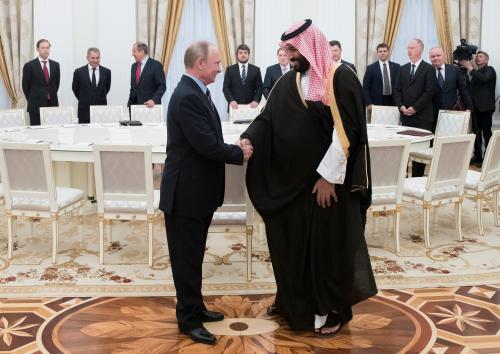
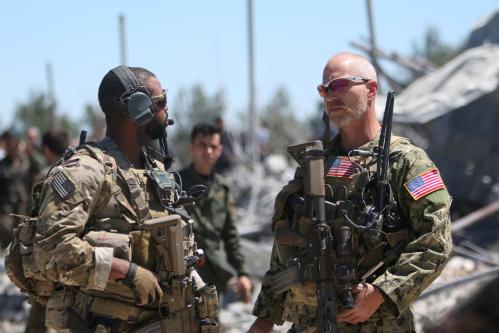
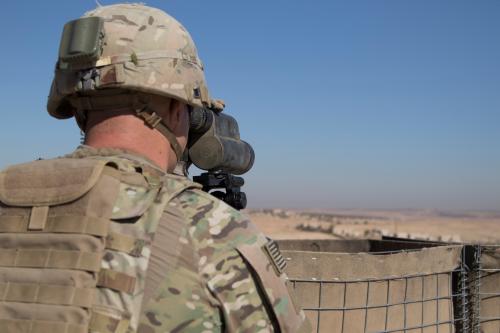
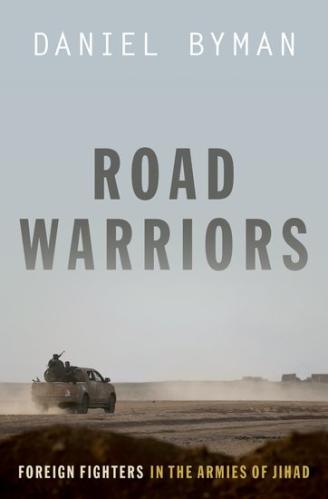
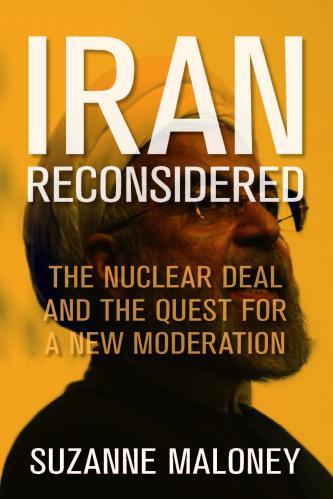
Commentary
8 years into Syria’s civil war, Brookings experts explain the US position and regional context
March 15, 2019